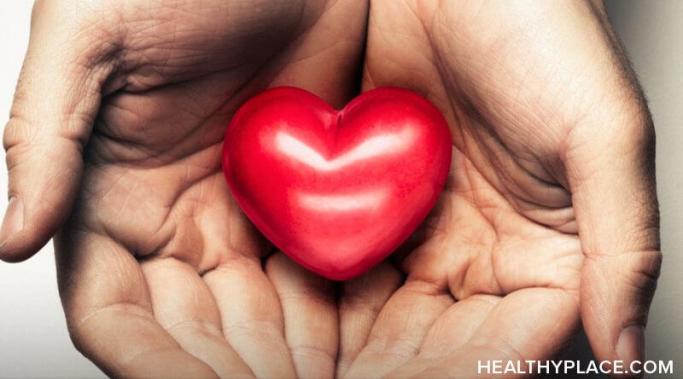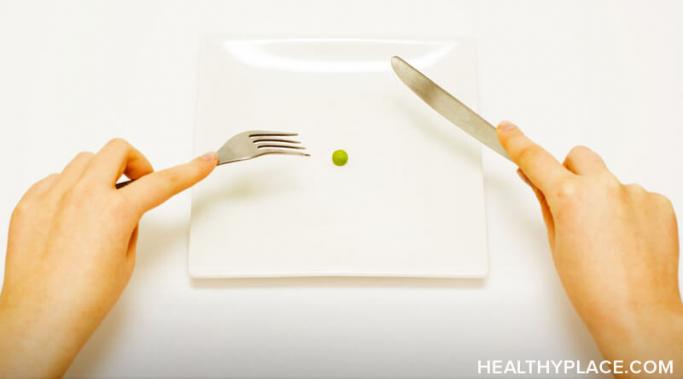This letter is to you, the person who wants to quit eating disorder recovery.
Anxiety and Eating Disorders
What does Pride Month mean to me in eating disorder recovery? That's a question I have explored intently during the past year. This is a vulnerable article for me to write because I have not spoken about it publicly until now, and it requires putting myself out there in a raw, exposed way. But since I am passionate about destigmatization—both in mental health and other sociocultural spheres—I think it could be meaningful to share this facet of my own personal identity, which has also become central to my eating disorder recovery.
In addition to my past eating disorder history, I am also someone who deals with anxiety in the present. This duality is not unique—in fact, an estimated 65 percent of those with eating disorders meet the diagnostic criteria for anxiety too. After numerous years of both residential treatment and other therapeutic modalities, I have learned how to manage the effects of anxiety, but in those times when stress wreaks particular havoc on my baseline functioning, I find that anxiety can influence my appetite.
One of the first lessons I had to confront in eating disorder (ED) recovery is that, more often than not, triggers are unavoidable. As much as I still want to insulate myself from these triggers that activate my harmful thought patterns, sheer avoidance is an unrealistic goal. The fact is, I will encounter situations that trigger me because I am a human who lives in the world. Many areas of life are chaotic, stressful, anxiety-inducing, and just plain uncontrollable—I cannot hide from this reality. So, a more effective use of time is to equip myself with tools to deal with ED triggers in environments outside my control.
When I reflect on some of the bravest people I know, those who are in eating disorder recovery often come to mind. That's because the pursuit of eating disorder recovery is courageous. It can be scary to take the steps into a new way of life apart from this illness, but the decision to move toward healing is also incredibly brave.
If you live confined within a scarcity mindset, then be warned: this mentality can—and often does—turn into an eating disorder. The term scarcity mindset refers to a belief that you do not deserve abundance and lack a sense of personal worth, so you act out of self-denial instead of nourishment and freedom. This can lead to dangerous behaviors, such as caloric restriction in an effort to deprive or discipline yourself, which could become a full-blown eating disorder over time. A scarcity mindset is detrimental to your healing, but it can be overcome in eating disorder recovery.
Relationships are challenging at the best of times, but when you're dating someone in eating disorder recovery, they can be even more so. After all, eating disorder recovery is a time when people should be focused on building a healthy relationship with themselves. Throwing another person into the mix complicates an already complicated situation.
I have used many coping mechanisms to help with eating disorder recovery, but one that I find particularly essential is a self-care toolkit for the holidays. I co-opted this idea back in high school from a teacher I was close to, and 10 years later, I still consider it beneficial. No matter where you are in eating disorder recovery, this season is often a mental and emotional battleground, so the importance of reliable coping mechanisms cannot be over-emphasized. Therefore, I want to discuss why I think a self-care toolkit is essential for the holidays—and how to create one yourself.
I'll state the obvious: dating someone in eating disorder (ED) recovery can be difficult. Since my husband and I are coming up on our 11th wedding anniversary, I'd thought I'd take the opportunity to talk about the challenges of forming healthy relationships when one party is struggling with an ED.
If I had to wear a name badge in public each day, it would announce to everyone around me: "Hello, my name is Perfectionist." This might seem vain or self-important, but in truth, it's debilitating because perfectionism is a roadblock to eating disorder recovery. The merciless expectations of achievement, the rigorous standards of appearance, and the continuous loop of self-deprecation can form just the right conditions for an eating disorder to take root. Therefore, to heal from an eating disorder, the roadblock of perfectionism must be overcome. This is hard work—but so necessary and worthwhile.









